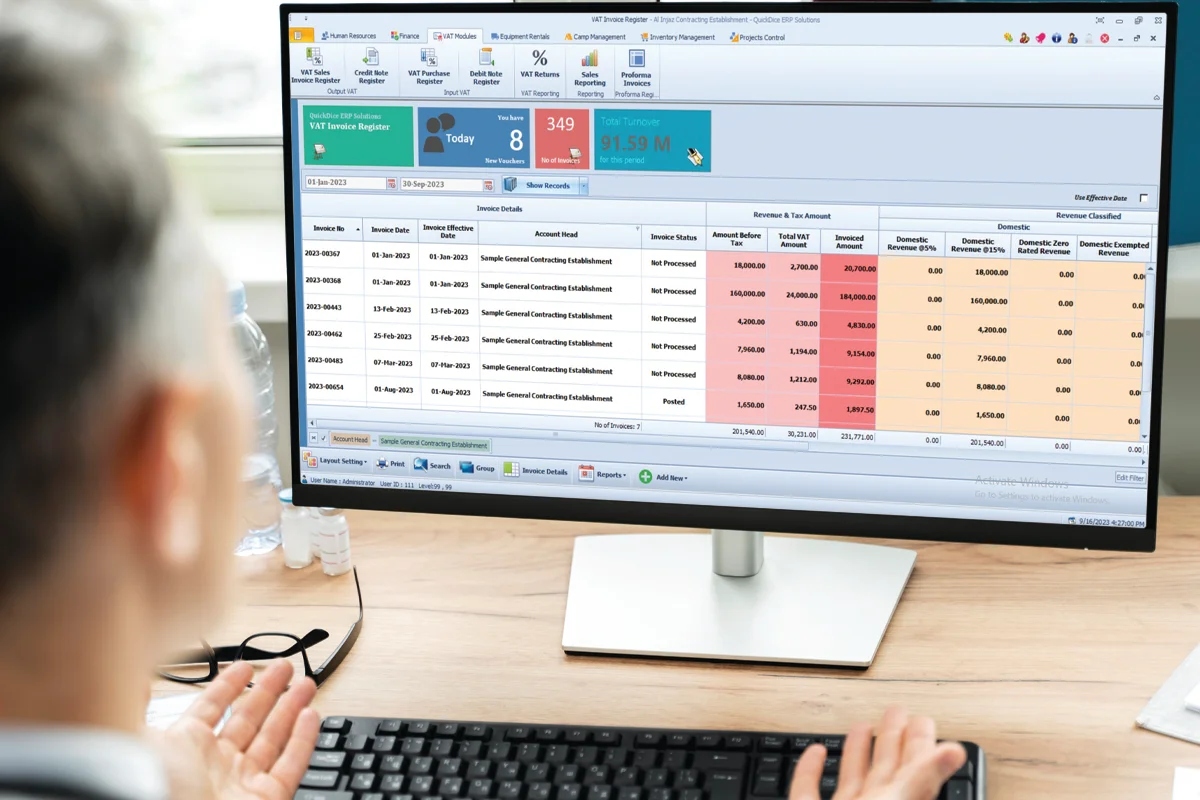

Did you realize it is common to spend hundreds of hours every year in a business by manually managing the financial processes? To CFOs and business owners it does not only slow down decision making, but further enhances the risk of making errors. The way out is in using sophisticated ERP systems to automate financial governance. At the center of all of these solutions is the ERP finance cycle, which automates the most important financial duties and ensures accuracy and delivers real-time information to allow better decision-making. ERP identity with the powerful finance module allows the business to process all the transactions and come up with financial reports promptly, hence, the application has become a mandatory utility of contemporary firms.
The ERP finance cycle unifies all financial operations in one platform and provides a logical base to manage accounts receivables, accounts payable, cash flow and asset monitoring processes. The automated invoicing feature, real-time reporting and regulatory compliance assistance would also help businesses gain better control of their finances, reduce errors and generate much-needed time as well. Businesses in Saudi Arabia looking to leverage the power of the best ERP system in Saudi Arabia may find that Quickdice ERP is an ideal fit as it balances flexibility and functionality to support financial professionals and accelerate business expansion.
ERP finance cycle is a systematic procedure in an ERP system that manages the entire monetary stream of business. It includes the most important functions including tracking of expenses, revenue monitoring, budgeting, and production of financial reports. By centralizing the processes, organizations will be able to stay accurate, enhance compliance and develop useful insights.
The ERP finance module is particularly important in this cycle since it merges accounting, reporting, and finance functions.This makes it so that tasks like transaction recording, tracking of payment and financial analysis are automated and simplified. Companies that streamline the ERP finance cycle have an improved management of cash flow, minimised errors and improved strategic decision-making.
A complete ERP financial cycle has a number of basic elements that interact with each other to ensure financial accuracy and compliance:
1. General Ledger (GL): The main financial accounts record of all financial transactions providing a summary of income, expenses and capital movements.
2. Accounts Payable (AP): It takes care of the payments made to parties, ensures it is done on time and eliminates errors.
3. Accounts Receivable (AR): Tracks the payments that customers provide and automates invoices to lead to better cash flow.
4. Cash Management: Liquidity is monitored and future cash flow forecasted in order to facilitate better decision-making.
5. Fixed Asset Management: To have an accurate record of the assets of the company, depreciation as well as, its maintenance.
6. Budgeting and Forecasting: It provides facilities to create any financial plans, variance analysis and forecast revenue in future.
7. Financial Reporting and Analytics: Automates the generation of the reports such as the balance sheets and profit and loss accounts, allowing real time information to allow strategic decisions to be made.
The work of the finance cycle in the ERP is going through five stages maximising financial transactions:
1. Budgeting and Forecasting: Forecast Revenue, expenses and cash flow based on real-time data.
2. Transaction Recording and Accounting: Automate transaction recording to ensure recording accuracy and efficiency.
3. Accounts Payable and Receivable Management: Receive payments and make payments to vendors in time.
4. Financial Reporting and Analysis: Create on the spot reports to take timely action.
5. Closing the Books: Automate accounting reconciliations and close reporting quickly and with accuracy.
There are a range of benefits of implementing a ERP finance cycle in your business:
By implementing the best ERP system in Saudi Arabia such as Quickdice, companies not only become compliant with the regulations, but also get an ergonomically designed and expandable tool.
Quickdice provides a fully integrated ERP solution to any type of business. Using Quickdice ERP, organizations can automate the ERP finance cycle, obtain accurate financial reporting and inter-relate to the other ERP modules. Relied upon by companies in Saudi Arabia and the world, Quickdice is a tool that checks the ERP financial management in terms of precision, efficiency, and regulatory compliance. Quickdice will help business optimize its accounting procedures, make it less difficult to manage cash flow, and ultimately pay attention to growth rather than operational financial issues.
As well as boosting your financial control, simplifying reporting, or adopting a scalable solution to your enterprise, Quickdice ERP is your partner to transforming finance operations.
In conclusion, the ERP finance cycle is a crucial software solution in the modern business environment looking to automate daily financial processes, promote accuracy, and stay compliant. Automating the processes of recording transactions, managing accounts, and reporting financial information allows companies to eliminate error, increase productivity, and have real-time access to their financial well-being. A strong finance module embedded into the ERP will provide all-online capabilities, which will enhance the finance cycle such as budgeting, forecasting, and closing of books effectively, hence enabling the business people to make logical decisions.
Selecting an ERP finance cycle solution as secure as Quickdice ERP even adds more value by providing a complete solution in terms of cash management, tracking assets and reporting. Real-time financial visibility and automated workflows allow businesses to better manage their resources, ensure they are compliant with regulations and bolster financial control. As a company trying to find the most effective ERP system in Saudi Arabia, Quickdice offers a highly scalable and easy-to-use solution that gives all your departments the ability to focus on growth, without compromise the accuracy and efficiency of all financial processes.
Comments are closed